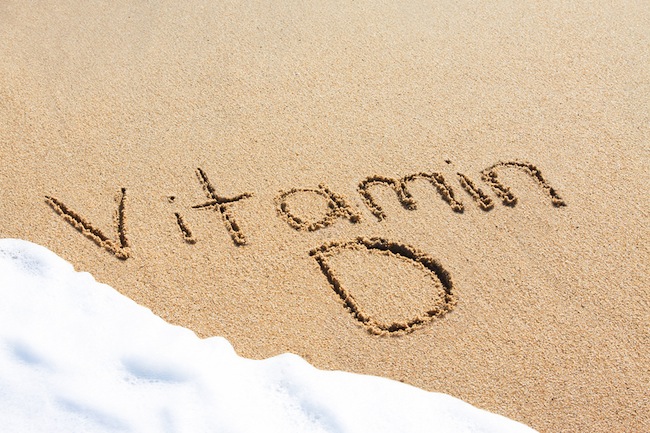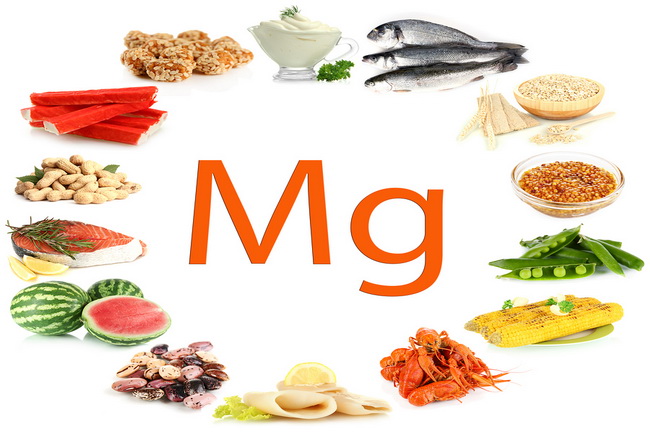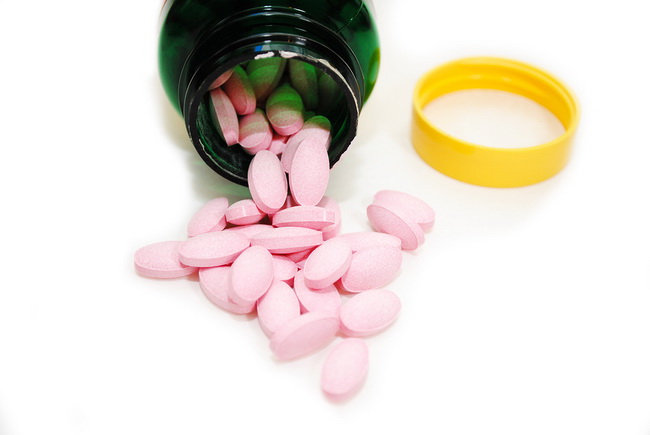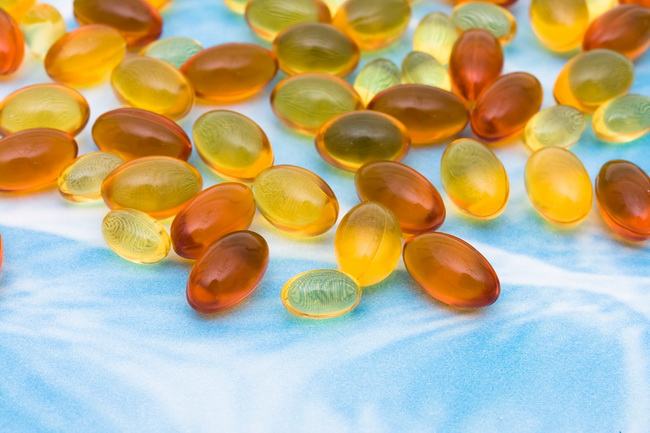- Make It Yourself Lavender Heart-Shaped Bath Bombs!
- 20 Things You Never Knew About “Down There”
- 12 Best Foods For Those Suffering From Arthritis Pain
- 12 Personal Hygiene Mistakes Almost Everyone Makes (Mom Never Told You About #4!)
- 15 Medicinal Plants And Herbs From The Cherokee People
- 12 Mind-Blowing Benefits Of Drinking Coconut Water During Pregnancy
- 12 Outstanding Winter Foods That Won’t Fatten You Up Like A Christmas Turkey
15 Of The Most Common Nutrient Deficiencies Most Americans Have

Photo credit: bigstock.com
If you eat a balanced, natural diet, chances are good that you are getting all of the important vitamins and minerals your body needs.
Too many of us, however, do not eat a perfect diet most of the time. Actually, not even half of the time. Now imagine your kid’s diet. Once they hit 10 or so years of age, kids tend to eat whatever it is their friends are eating. This includes plenty of fast food and French fries.
Even if you do eat well and your children are small enough that you can control their diet, where your food was grown can influence its nutritional content. Also, let’s not forget other factors that are really out of your control – your age, the health of your digestive tract, and even certain health conditions can have a huge influence on the amount of nutrients that your body can actually absorb from the foods you eat.
In many cases, nutritional deficiencies can be terribly difficult to diagnose, and you might not develop any symptoms at all until the deficiency is fairly pronounced.
If you have been having health problems or symptoms that your doctor cannot seem to pinpoint, you might have nothing more than the lack of a certain vitamin, mineral, or amino acid.
Want to know more? Keep reading; there is a great deal of helpful information in the following list of 15 very common nutritional deficiencies in the American diet today.
1. Potassium
This mineral is very important to the body for the proper functioning of numerous organs, including the heart, kidneys, and other organs. It is also vital for proper blood pressure. You can become potassium deficient fairly quickly simply with a good case of food poisoning or from excessive sweating, such as when playing sports on a hot day. Long-term potassium deficiency leads to kidney disease and is frequently seen in those with eating disorders. Potassium is vital for converting your food into energy and for helping the body build muscle as well. If you want to lose weight or if you want to gain muscle, you need potassium. You can get more potassium from bananas, whole grains, and dairy products.
Continue to Page 2

Photo credit: bigstock.com
2. Vitamin D
Vitamin D deficiency never used to be a problem in the US. However, everyone is now so “sun-shy” that vitamin D deficiencies are quite common. Researchers estimate that at least 50 percent of Americans have a vitamin D deficiency. This vitamin is vital for stopping depression, proper immune system function, and stopping cancer. Be certain that you get a minimum of 15 minutes of sunshine each day on your bare skin. If you have darker skin, you need even more. Have your vitamin D levels checked at least once each year.
3. Zinc
This interesting little compound is found in every single cell in the body. Zinc is what helps the immune system fight off viruses, such as the flu, and bacteria. It helps the body make protein, and even affects your DNA development. Without zinc, you would have no sense of taste or smell! One of the easiest ways to get zinc is through Brazil nuts. Just one Brazil nut each day will give you all the zinc you need to keep your immune system strong. You can also find zinc in seafood such as crab, lobster, and oysters, or in red meat, like beef.
4. Omega-3 Fatty Acids
Having low levels of omega-3 fatty acids has been linked in studies with an increased risk of death from all causes. Most Americans eat too many of the omega-6 fatty acids via GMO vegetable oils, which increase inflammation in the body. This conditions you for numerous health problems, including diabetes, rheumatoid arthritis, heart disease, depression, and even certain types of cancer.
If you have been suffering from a poor attention span, dry hair, brittle nails, dry skin, “chicken skin” on the back of the arms, and fatigue, you could have an excess of omega-6 fatty acids and not enough omega-3 fatty acids. By getting more fish to eat you supply your body with plenty of healthy omega-3 fatty acids. You can also take a fish oil or krill oil supplement, but speak with your doctor about the proper dosage for your unique condition.
Continue to Page 3

Photo credit: bigstock.com
5. Iodine
Without iodine, your thyroid gland simply cannot work. If you think your hormones might be out of balance, it could be due to an improperly functioning thyroid gland. A deficiency in iodine can lead to a malfunctioning or enlarged thyroid gland. You can get more iodine by eating more seafood, seaweed, and salt that has iodine added to it.
6. Vitamin K2
For optimal health, vitamin K2 is about as important as vitamin D. For the health of your arteries, blood vessels, and bone strength, you need vitamin K2. This vitamin also plays an important part when it comes to other processes in the body, such as cell growth and tissue renewal. Vitamin K2 works together with vitamin D and calcium to build strong bones. You can find it in fermented foods such as kombucha, pickles, and sauerkraut. Raw dairy products also contain high levels of vitamin K2.
7. Glycine
Glycine is an amino acid that you don’t hear about often, but your body will certainly show it when you get too low on it. Common signs of a deficiency are weight gain, weight that you cannot get rid of, low thyroid function, blood sugar problems, PMS, fatigue, constipation, and digestive problems. Glycine is necessary to neutralize the detoxification reaction in your liver. You can get more glycine in fish, bone broth, and gelatin.
Continue to Page 4

Photo credit: bigstock.com
8. Magnesium
As important as this mineral is, about 80 percent of all Americans are deficient in it. Your body simply cannot function well without magnesium. Magnesium plays an important part in the detoxification process. A deficiency in this mineral often shows up as migraine headaches, high blood pressure, heart disease, and cardiac arrest. Be certain that you are getting enough of this vital mineral by eating plenty of dark green leafy vegetables such as spinach and Swiss chard. You can also find this mineral in beans, nuts, and seeds. Don’t rely on supplements for this one as your body cannot easily absorb magnesium via synthetic supplements.
9. Choline
This is a B vitamin that is perhaps best known for the vital role it plays in brain development. This vitamin is important when it comes to the health of the cell membranes of the brain as well as having powerful anti-inflammatory compounds, which is important for stopping disease such as dementia and Alzheimer’s. Your body can only use small amounts of this at a time, so you need to get it from your diet almost every day. Some estimates are that as much as 90 percent of Americans are deficient in this nutrient. Your best source of choline is from eggs and grass fed meats. You can also try Brussel sprouts, raw milk, broccoli, and wheat germ.
Continue to Page 5

Photo credit: bigstock.com
10. Vitamin B12
This is another B vitamin that is vital for the body when it comes to energy production, DNA synthesis, and blood formation. The body needs very little of it, but it is absolutely vital. About ¼ of the American population is deficient in this B vitamin. Symptoms of a B12 deficiency are severe mood swings, mental fog, memory problems, fatigue, muscle weakness, and extreme feelings of apathy. This vitamin is only found in animal sources of food, which is why most deficiencies occur in vegans. Vegans will need to take a supplement. Everyone else can get plenty of this vitamin by eating more salmon, shrimp, scallops, eggs, lamb and venison.
11. Iron
Iron is essential for life itself. Without iron, the body cannot transport oxygen. It also regulates cell growth. Without oxygen, your cells would quickly die. Common symptoms of iron-poor blood are extreme fatigue, anemia, and an impaired immune system. Too much iron is also not good for the body, so it is a good idea to have your blood tested at least once each year.
12. Calcium
One of several compounds that’s needed for healthy bones, calcium, gets all of the attention. Calcium needs to be balanced with magnesium, vitamin D, and vitamin K2. An excess of calcium can lead to kidney stones in the body. You can get plenty of calcium through raw or organic milk products, leafy green vegetables, wheatgrass, and carob. Be certain that you are also consuming plenty of vitamin K2-rich foods and magnesium so that your body can make use of the calcium you consume. Don’t consume a calcium supplement without your doctor’s supervision.
Continue to Page 6

Photo credit: bigstock.com
13. Vitamin E
This vitamin is mostly known for its ability to help skin heal itself and stay soft, but it is also very important for a healthy brain. Recent studies involving lab animals have suggested that a vitamin E deficiency can cause brain damage. Other studies have found that vitamin E supplements can help to delay the onset of Alzheimer’s. Good dietary sources of vitamin E are nuts of all kinds, sunflower seeds, legumes, spinach, broccoli, and olive oil.
14. Vitamin A
For healthy skin, teeth, bones, vision, and cell membranes, your body needs this fat-soluble vitamin. Vitamin A is also important for normal immune system function. Vitamin A and vitamin D work together in ways that aren’t fully understood, but we do know that you need a good balance of both for the body to use them properly. You can get plenty of vitamin A from fish, liver, chicken, grass fed beef, and dairy products.
READ ALSO: Best Foods and Vitamins For Healthy Eyes And Preventing Cataracts
15. Folate
Also known as folic acid, this vitamin is especially important for women, both before and during pregnancy. This is why you will find most prenatal vitamins loaded with folate. Folate is still important even for men or women past childbearing age. Folate is important for the regulation of red blood cells. You can find folate in foods such as broccoli, spinach, asparagus, chickpeas, and Swiss chard.
References:
































